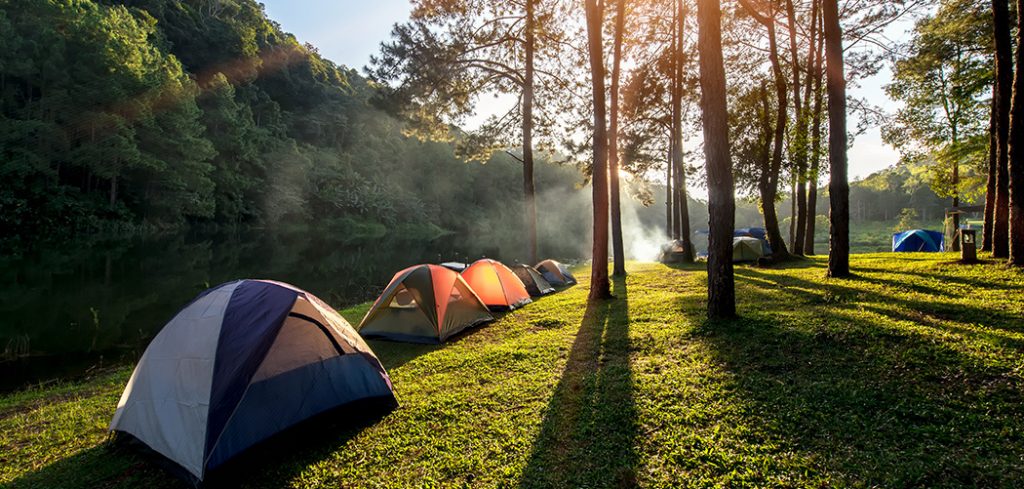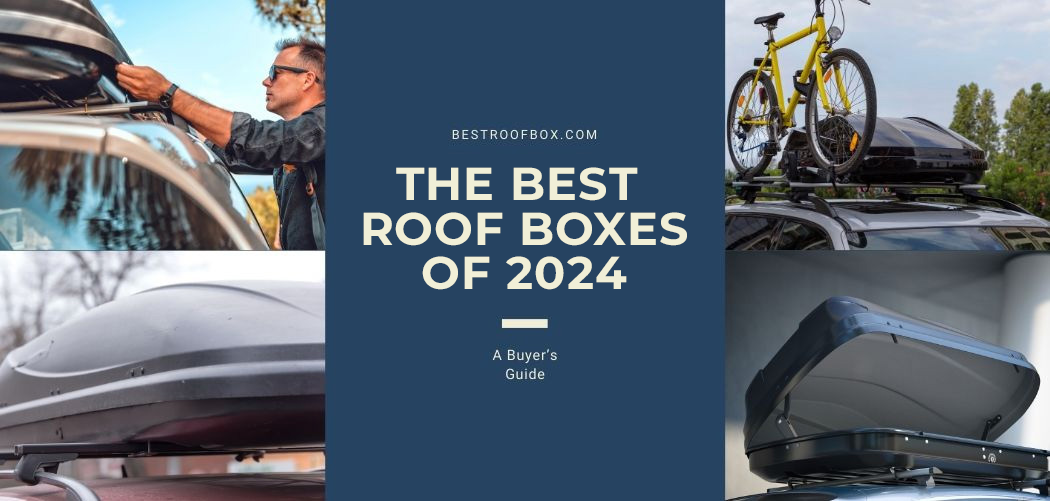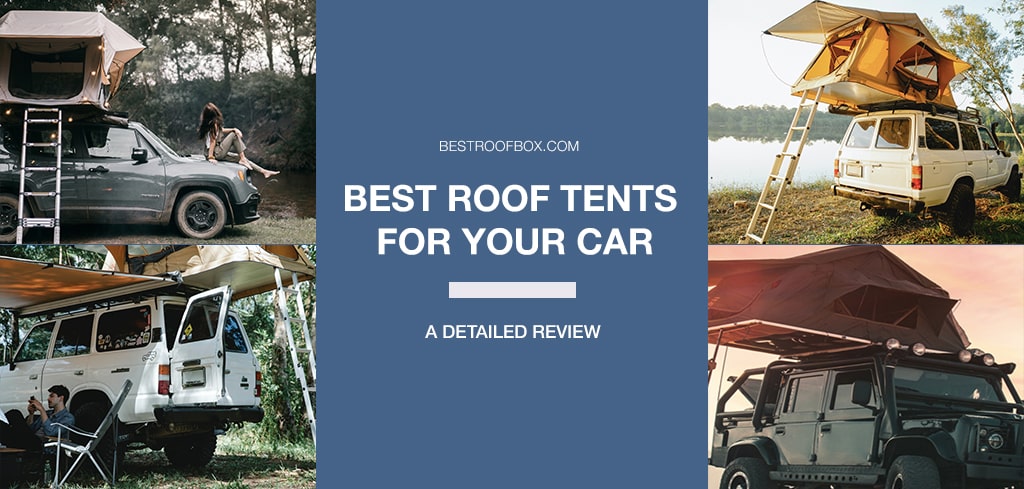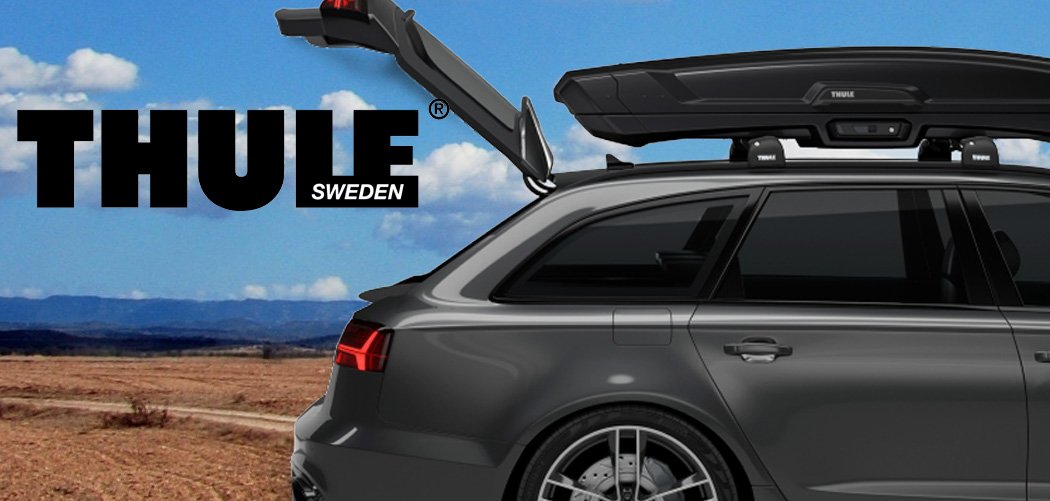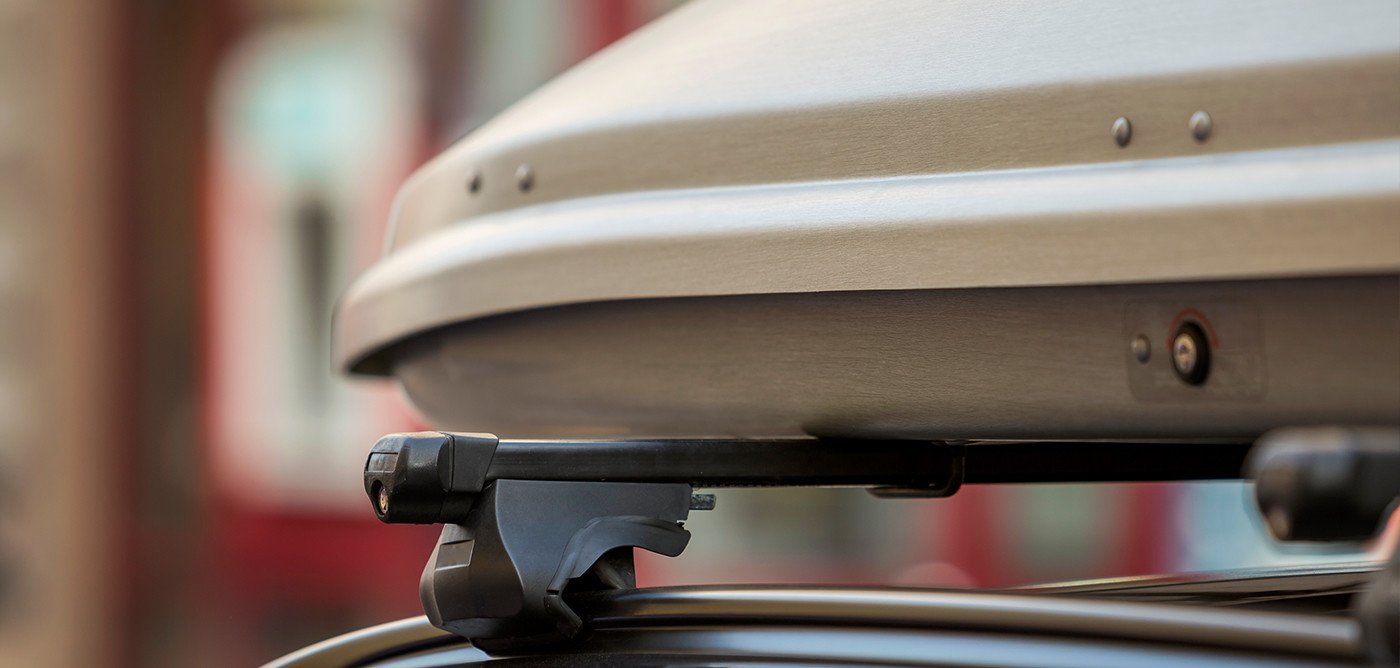If you love to camp, you already know the challenges of finding the space to hold all of your camping supplies, especially if you travel with kids. Let’s face it; between stoves, cookware, clothes, and sporting goods, you likely need a lot of space to make sure that you don’t forget anything. This may lead you to ask if it is better to bring a trailer or use a rooftop carrier?
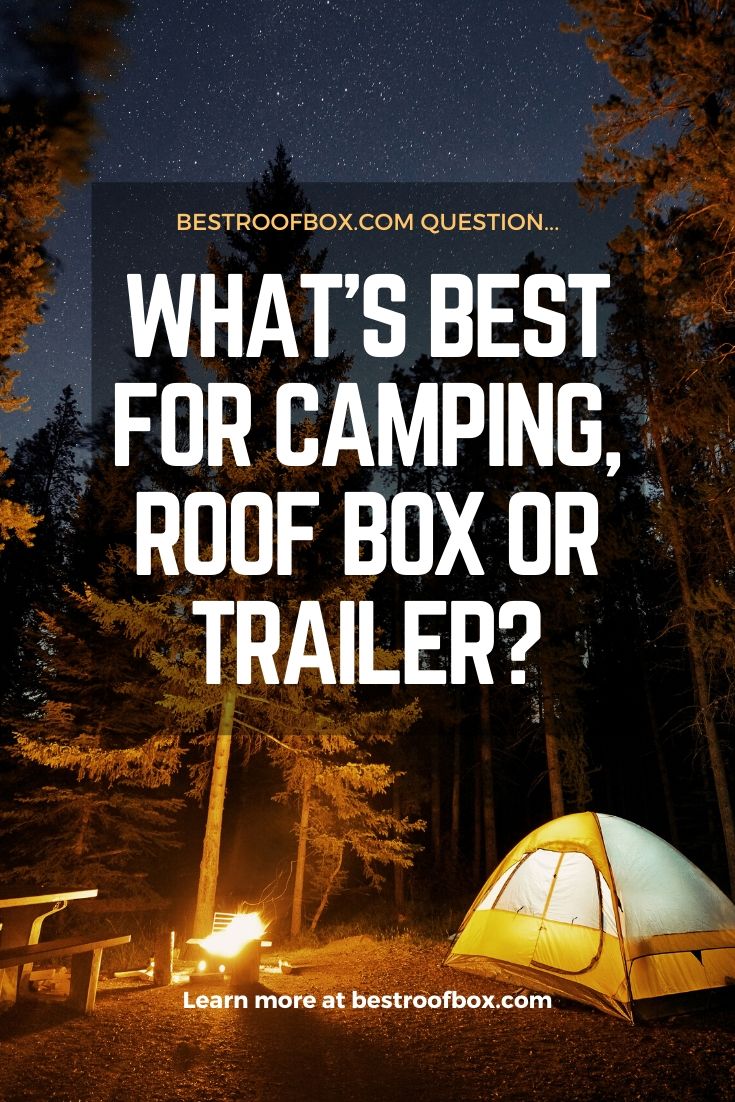
As with many other products, there are advantages and disadvantages with both of these options but it all starts with ascertaining your own needs and knowing what you will and will not be bringing with you on the trip.
Some people head to the campsite with just the bare essentials while others want a home-away-from-home feel and like to bring as much as they can. If you’re somewhere in between, which most people are, you’ll have to learn the pros and cons of using a roof box versus using a trailer.
Table of Contents
What Makes Roof Boxes So Useful?

Rooftop carriers come in lots of different sizes and are made in two main designs: a hard-shell case and a soft bag that is usually made out of some type of polyester. They can be attached to your car’s roof via the roof rack or tied around the top part of the vehicle with straps. They also range quite a bit in size, holding anywhere from 8 to 30 cubic feet of items inside.
Choosing a roof box is practical and doesn’t require any additional equipment to attach it to your car since it is easily strapped to the roof. Since it goes on the roof and is not carried behind the vehicle, it doesn’t take up any unnecessary room as you travel. This is important whether you’re camping or heading to your favorite fishing spot so it is something to consider in advance.
 As a general rule, roof boxes are usually easier to deal with and less expensive as well. If all that you’re bringing are suitcases, roof boxes will work perfectly. After all, these carriers are usually made specifically to hold suitcases and many types of gear so if this is all that you’re taking along with you, a rooftop carrier bag is perfect.
As a general rule, roof boxes are usually easier to deal with and less expensive as well. If all that you’re bringing are suitcases, roof boxes will work perfectly. After all, these carriers are usually made specifically to hold suitcases and many types of gear so if this is all that you’re taking along with you, a rooftop carrier bag is perfect.
Of course, as with any other product, roof boxes have their disadvantages. One of the main ones is the fact that in most cases, they simply cannot hold as many items as trailers do, especially since trailers come in some very large sizes. If you are looking to take a lot of items with you to the campsite, you may want to consider a trailer instead.
In addition, you have to pay close attention to the weight that a roof box can accommodate. If you go over the manufacturer’s recommended limit, it can damage your vehicle and even the roof box itself. Most roof boxes can hold between 75 and 250 pounds of items but it is important that you check this first before loading the box so that it doesn’t become too heavy.
You also have to consider the weather because some cartop carriers are not waterproof but only water-resistant, which means that the items you’ve packed for your camping trip might get wet if it rains especially hard. This isn’t a problem that you’re likely to have if you choose a trailer. If it rains a lot where you live, you might want to check the carriers first to make sure that they’re 100% waterproof, in which case all of your items should be fine.
 Finally, getting items in and out of a rooftop carrier is not always as easy as it seems. Since roof boxes are a little higher than normal and you may have to reach overhead to retrieve the items you need, it can be cumbersome to get those items. In addition, continuous opening and closing of a roof box can get inconvenient after a while, which is something that you wouldn’t have to worry about if you choose a trailer instead.
Finally, getting items in and out of a rooftop carrier is not always as easy as it seems. Since roof boxes are a little higher than normal and you may have to reach overhead to retrieve the items you need, it can be cumbersome to get those items. In addition, continuous opening and closing of a roof box can get inconvenient after a while, which is something that you wouldn’t have to worry about if you choose a trailer instead.
Roof boxes are relatively inexpensive and make carrying around your suitcases and gear fairly easy but they do have their drawbacks. If you’re simply taking suitcases with you, a roof box is likely just what you need; however, if you’re planning to take along numerous items for one reason or another, a trailer might better meet your needs. However, trailers also have advantages and disadvantages that should be considered.
Advantages
- Easy to install
- Relatively less expensive
- Many sizes to choose from
- Specifically design to hold suitcases and many types of gear
Disadvantages
- Cannot hold very large items
- Can damage the roof box if overloaded
- Not all roof box are waterproof
- Cumbersome to reach the items inside the roof box
What About Buying a Trailer?

Just as with roof boxes, if you’re planning to camp with a trailer, it is a good idea to keep in mind the advantages and disadvantages so that your packing needs will be met in the end. Obviously, the biggest advantage of choosing a trailer is its size. You can simply put a lot of gear, suitcases, and even bicycles into a trailer without worrying about running out of space.
And speaking of trailer space, you can even load up your trailer with your camping gear and store it in your driveway until you need it. This way, you can easily take off on your next getaway at the spur of the moment. Of course, you’ll need to store the trailer in a convenient spot but this is not a problem for most people. The point is that with a trailer, you can store a lot more items than you can in a rooftop carrier and you can also keep the items packed inside when it isn’t being used.
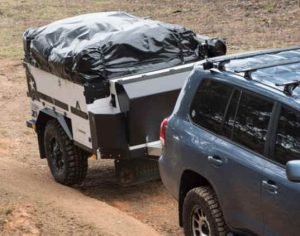 Another advantage of choosing a trailer over a rooftop carrier is the security. Many roof boxes come with locks and keys but many others do not. Trailers are always easy to lock up, making them a much better option when you have items inside that are especially valuable. Although there are no guarantees that someone won’t be successful at breaking into your trailer or roof box, the truth is that trailers overall are much easier to keep safe.
Another advantage of choosing a trailer over a rooftop carrier is the security. Many roof boxes come with locks and keys but many others do not. Trailers are always easy to lock up, making them a much better option when you have items inside that are especially valuable. Although there are no guarantees that someone won’t be successful at breaking into your trailer or roof box, the truth is that trailers overall are much easier to keep safe.
If you do end up choosing a trailer, the first thing that you’ll need to check is the manufacturer’s recommendation when it comes to towing that trailer. Each vehicle has its own towing limit, which is always included in the car’s owner’s manual. Ideally, you should check that number before purchasing your trailer because this is the only way to know for sure that your car will be able to handle its weight.
In addition, you also have to watch your speed when you’re traveling with a trailer and this is something that you don’t have to watch when you have a roof box. If your trailer is small and light, you’ll have to go especially slow; otherwise, the trailer can bounce around while you’re driving. In general, you’ll have to travel at slower speeds with a trailer attached to your car because it can affect your safety and the way the trailer rides if you don’t.
And speaking of traveling with a trailer, this can be a little difficult when you’re planning to drive over mountainous terrain and high elevations. Driving on a narrow mountain lane is not difficult with a rooftop carrier but it can be harrowing when you are driving with a trailer. A trailer can behave erratically if you choose this for your next camping trip but a roof box will always remain secure and still.
Another potential disadvantage of choosing a trailer is the maintenance that is often involved. Unlike roof boxes, trailers can sometimes need repairs or a little work is done. Even though most of these repairs aren’t likely to cost you a lot of money, this isn’t always the case. When a roof box is in bad shape, it is often cheaper just to get another one but this doesn’t always apply to trailers.
Advantages
- Ample space to load some large items
- Better security
Disadvantages
- Difficult to drive over mountainous terrain and high elevations
- High maintenance
A Few More Considerations
In addition to all of these things, there are also some practical considerations that should be taken into account when you’re trying to decide between trailers and roof boxes. For one thing, there is the price. Trailers can get very pricey and even though some roof boxes are relatively expensive, they tend to be much cheaper than purchasing a trailer.
If you’re on a budget, price is important to you but, again, it may behoove you to go ahead and choose the trailer if this is your only requirement. In the end, some trailers can be less expensive than many roof boxes. If the price is something that you have to consider, doing your due diligence and researching the products thoroughly is always recommended.
Determining what you’re planning to do with your trailer or roof box when you’re not camping or traveling is also important. When the weather gets cold and you’re not likely to camp or vacation as often, you’ll have to decide what to do with either the roof box or the trailer. Although roof boxes are smaller than trailers, they are often more cumbersome to store because you usually need a space big enough to accommodate them and sometimes special equipment as well.
 If you’re packing bicycles for the trip, you also have to consider where to put them in relation to the trailer or roof box. If you have a trailer but decide to use a separate rack for the bicycles, you have to make sure that it is compatible with your trailer and doesn’t get in the way. Conversely, most hitch-based bicycle racks won’t get in the way of a roof box so this is something else to consider.
If you’re packing bicycles for the trip, you also have to consider where to put them in relation to the trailer or roof box. If you have a trailer but decide to use a separate rack for the bicycles, you have to make sure that it is compatible with your trailer and doesn’t get in the way. Conversely, most hitch-based bicycle racks won’t get in the way of a roof box so this is something else to consider.
Moreover, you should always consider the effect that these items will have on your gas mileage. Both roof boxes and trailers can cause some drag and cause you to spend more money on gas but, as a general rule, roof boxes aren’t quite as bad. Towing a large trailer behind you as you travel is likely to be more expensive for you in the end, making this a factor that should not be overlooked.
Also, when you park your car, you’ll need a lot more space if you’re hauling a trailer behind you because parking with a rooftop carrier won’t affect the space that you’ll need to park. If you’re headed out to the campsite or your vacation spot and you plan to stop for the night, this is something that you have to consider. Consider what you’re going to do with the trailer versus what you’ll do with a roof box before you make your final decision.
There is also the ongoing cost involved, which is practically non-existent when you purchase a roof box. Trailers, on the other hand, may require safety tags and even parking passes in some instances. Each area has its own requirements for trailers, of course, and even though it normally doesn’t cost much to register or keep a trailer, it can make a difference if you’re on a strict budget.
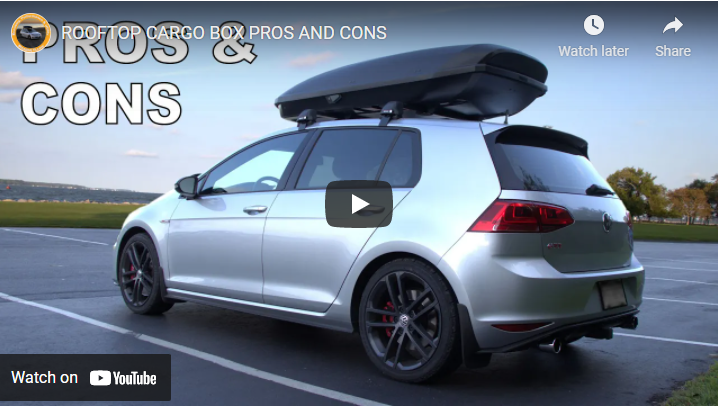
Conclusion
Deciding between a roof box and trailer when you’re a camping enthusiast means becoming familiar with the pros and cons of each of these options. To summarize, the main considerations when choosing between these two items include the following:
- Price of the item
- Price of maintenance and repairs
- Parking considerations
- The amount of room available in each
- The effect on your gas mileage
- The effect on your driving ability
- Ease of getting cargo in and out of the item
Roof boxes will make your vehicle taller while trailers will make it longer. Both of these can have an impact on the route you choose to get to your destination and even on your gas mileage. If you’re planning to travel under a lot of bridges, you’ll definitely have to take into consideration the height of your roof box but the height of your trailer likely won’t matter.
Fortunately, thanks to the Internet, it is super easy nowadays to explore your options and get the details you need to make the right decision. You’ll want to view any trailers you’re considering in person, of course, but roof boxes can be ordered online and you’ll find their descriptions quite accurate. Regardless of the choice, you make in the end, it is good to know what to look for before you start your research to make it easier for you during the process.
